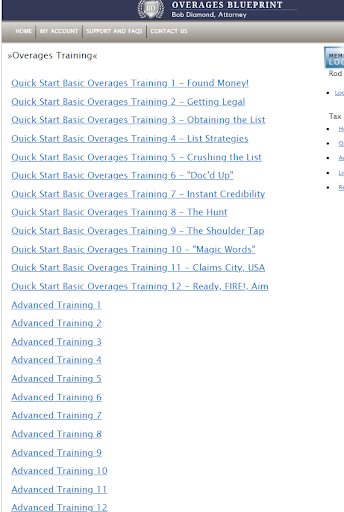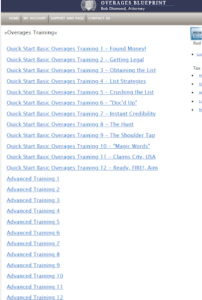Concrete Contractors Colorado Springs have a wide range of jobs and responsibilities. It is important that they communicate well with others on the job site and that they are able to meet deadlines.
They also know how to build concrete structures that will last for a long time. They can also repair existing concrete features if needed.
A concrete contractor needs to have a lot of practical experience in the field and in the office. Academic theories will not suffice for this profession, and it is essential to learn hands-on skills through training. Moreover, a contractor must have the necessary equipment to carry out his or her job. This can be purchased or obtained through rental agreements. The contractor must also know how to manage the paperwork and financial aspects of running a business and must develop good interpersonal skills for working with clients, contractors, and employees.
Another important qualification is knowledge of concrete construction and the different stages it goes through. For instance, a concrete contractor should be able to prepare the site for construction and ensure that it is free of rocks, garbage, grass, and other debris before concreting starts. This is to ensure that the ground will be able to support and load the concrete properly for years to come.
Additionally, a concrete contractor must be aware of the proper curing techniques and methods to maintain the strength and quality of the finished product. For example, he or she should know how long concrete must be kept wet to cure and be familiar with the temperature requirements for the best results. The contractor must also know what kinds of materials to use for the different projects.
Moreover, a concrete contractor should be proficient in project management and be able to create plans and designs for various types of projects. For instance, he or she should be able to determine the shape, size, color, and finish of the concrete that will be used. A contractor should also be able to plan and organize his or her work according to the deadlines and schedules of the client.
Licenses
Concrete contractors need to have a license from the state where they intend to operate. This process varies from state to state but typically involves submitting an application and a fee, passing an exam, and providing proof of financial solvency. Some states also require a background check and criminal history. In addition, contractors must obtain a bond before starting any work on a construction project. A bond protects consumers in the event that a contractor fails to complete a job or pays its subcontractors and suppliers late.
Some concrete contractors may perform the necessary preparation work for a concrete project themselves. This includes mixing and preparing concrete as needed. However, others may choose to outsource this aspect of the job. Regardless, these professionals will be skilled in ensuring that the concrete meets all specifications and structural requirements. They will also ensure that all customers are fully informed and aware of the timeline for completion and overall costs.
Another area of expertise is reading and understanding design plans. Concrete contractors must be able to interpret these blueprints and know when they should override the drawings. In order to do this, they should have a thorough understanding of construction and engineering principles.
A concrete contractor must understand the different stages of concrete, from a dry mix to the hard surface that we use daily. Having this knowledge will allow them to make sure that the project is completed in a way that meets the highest standards of quality and safety. It will also help them to ensure that they are meeting all of their legal obligations, including EPA compliance. They must also be able to communicate effectively with their clients, subcontractors, and vendors.
Experience
Concrete contractors are skilled in building structures with concrete, a material that is both durable and versatile. They can create a variety of structures with concrete, including driveways, floors, walls, and foundations. They may also work on large construction projects like bridges and highways. They must have a good understanding of the properties of concrete and how to use it in different situations.
Experience is one of the most important qualifications a contractor must have, and this can be gained through training or working for a concrete company. It is also necessary to join professional associations, as these will help you stay up-to-date with industry developments and safety standards.
It is vital for a concrete contractor to know where they want to focus their business. They must decide whether they want to work with residential customers, commercial clients, or public works projects. Each area requires a different set of skills, so it is best to choose a niche and focus on that.
When hiring a concrete contractor, be sure to check their portfolio. They should be able to show you pictures of previous projects they have worked on. In addition, they should be able to answer any questions you have about their previous work.
In addition to their concrete skills, a good contractor will have business management experience. They will need to be able to manage their employees, budgets, and equipment. This can be achieved through attending business school or by working as a subcontractor for several years. They will also need to be able to communicate effectively with their clients and other subcontractors. Many concrete contractors will also have business software such as Bridgit Bench, which can help them streamline their operations and improve efficiency.
Insurance
Concrete contractors have a unique set of insurance needs. They need general liability insurance to protect them from third-party damage and injuries that can occur on job sites. This coverage can pay for legal expenses, awards, and settlements if the company is found liable.
Commercial auto insurance is also a must for concrete contractors. These policies cover vehicles owned by the business, including cement mixer trucks. This type of policy may also include hired and non-owned vehicle coverage. The average concrete contractor uses multiple vehicles for business purposes, so it is important to get the right coverage.
Workers’ compensation is another type of insurance required by most states. This policy covers medical expenses and lost wages for employees who are injured on the job. Additionally, it may pay survivors’ benefits in the event of a fatal accident. Most clients will require proof of workers’ compensation insurance before hiring a concrete contractor.
Another type of insurance needed by concrete contractors is professional liability insurance. This type of insurance protects the company from claims made by clients due to errors or omissions in their work. It may also cover damage to property caused by the company’s work.
Finally, concrete contractors need commercial property insurance to cover their buildings and equipment. This type of policy protects against damage from common perils like fire, windstorms, and theft. A concrete business with a lot of expensive machinery and tools is at risk for damage, so it is crucial to have the right protection. An independent insurance agent can help you determine what types of coverage are necessary for your concrete business. They will also help you compare quotes from a range of insurers to find the best rates.
Reputation
A contractor with a good reputation in the industry is likely to give you high-quality work at a fair price. In addition, a reputable concrete contractor will be able to provide you with references and testimonials from previous customers. These can help you determine whether they are the right choice for your project.
You can also ask friends and family members about their experience working with concrete contractors. They can tell you about the contractor’s services and how satisfied they were with the finished product. This can save you a lot of time and effort when it comes to finding the best concrete contractor for your needs.
Another important factor to consider when choosing a concrete contractor is their reliability. You want to choose a company that is able to meet your deadlines and complete the job in a timely manner. In addition, a reliable concrete company will stay openly communicative throughout the entire process and keep you updated on any changes in schedule or costs.
Finally, a reputable concrete contractor will have years of experience working on residential and commercial projects. They will have a wide range of skills and tools to complete any project, from sidewalks and driveways to patios and basements. Additionally, an experienced contractor will be able to offer you advice on the best concrete products and techniques to use for your project.
When it comes to finding a reputable concrete contractor, you should take the time to research different companies and compare their prices and customer service. Choosing the right contractor can save you money in the long run and ensure that your concrete projects are completed on time and within budget.


